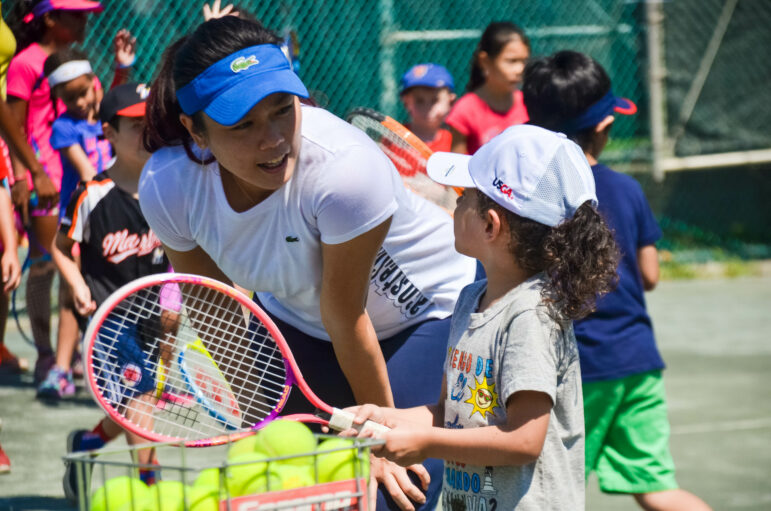“We all have a responsibility to foster the next generation of female leaders, but women in particular need to empower our younger female peers by serving as mentors and role models. Young girls need to know we are there to support them.”

City Parks Foundation
We all have a responsibility to foster the next generation of female leaders, but women in particular need to empower our younger female peers by serving as mentors and role models.
New data from the CDC illustrate that more than 40 percent of teen girls are experiencing mental health challenges that prevent them from leading their lives to the fullest. We all have a responsibility to foster the next generation of female leaders, but women in particular need to empower our younger female peers by serving as mentors and role models. Young girls need to know we are there to support them.
Early in my career, I was lucky enough to work for a woman at the New York Public Library who did just that, and her support was instrumental to my growth. She gave me opportunities few other 20-somethings had, challenged me with increasing levels of responsibility, and ensured that I got to interact with senior leadership. She recommended me for scholarships that allowed me to keep learning, and resulted in several promotions. By 38, I was vice president of development and had a clear career path in front of me.
Thanks to this support, I am lucky to now lead a nonprofit, City Parks Foundation, where I can proudly say that 75 percent of senior leadership is female and 50 percent of artists who participate in our SummerStage performing arts festival identify as female or non-binary. Yet these statistics are still unusual. On a whole, women continue to be sorely underrepresented in many areas of our society.
By the age of 14, girls drop out of sports at two to six times the rate of boys. According to the Women in Sports Foundation, the primary reasons are a lack of role models and social stigma against female athletes that makes them feel unwelcome and undervalued. The mental health benefits of outdoor physical activity and team relationships are many, but how likely are women to participate when the majority of youth sports coaches don’t look like them? Last year was the 50th anniversary of Title IX, which prohibits sex discrimination, so there is just no excuse for this inequity.
I’ve seen firsthand that when girls are supported in sports, they not only enjoy themselves but find a path forward. Blossom, a young woman in the CityParks Golf program, first joined our program when she was seven years old. Now, 16 years later, she is still involved with the program as a coach. She shares her story with girls in the program regularly, so they can see a similar path for themselves. One student even told her mother she wanted to be a coach just like Blossom when she grew up.
On a more global scale, approximately 37 percent of teenagers are feeling some form of climate anxiety and there’s a reason for that: there seems to be no hope in sight and individual action can seem useless. And yet, although women make up more than 60 percent of college graduates, just 28 percent of the STEM (science, technology, engineering and mathematics) workforce—the industry that is most likely to have an impact on climate outcomes—is female.
That’s why programs like Green Girls exist—to use social-emotional learning and conversations focused on female empowerment, individual voice, and self-awareness, all with a goal to help young women realize their potential to create change within the natural environment and their own lives.
Women facing societal barriers need support to break through. That’s why I’m putting a call out to women to take the next generation of leaders under your wing. Show them what it takes to succeed and give them tangible support to help them excel. We didn’t get to where we are without guidance. Our city’s young women have the potential to change our society for the better. But they won’t reach that potential without us.
Heather Lubov is executive director of City Parks Foundation








